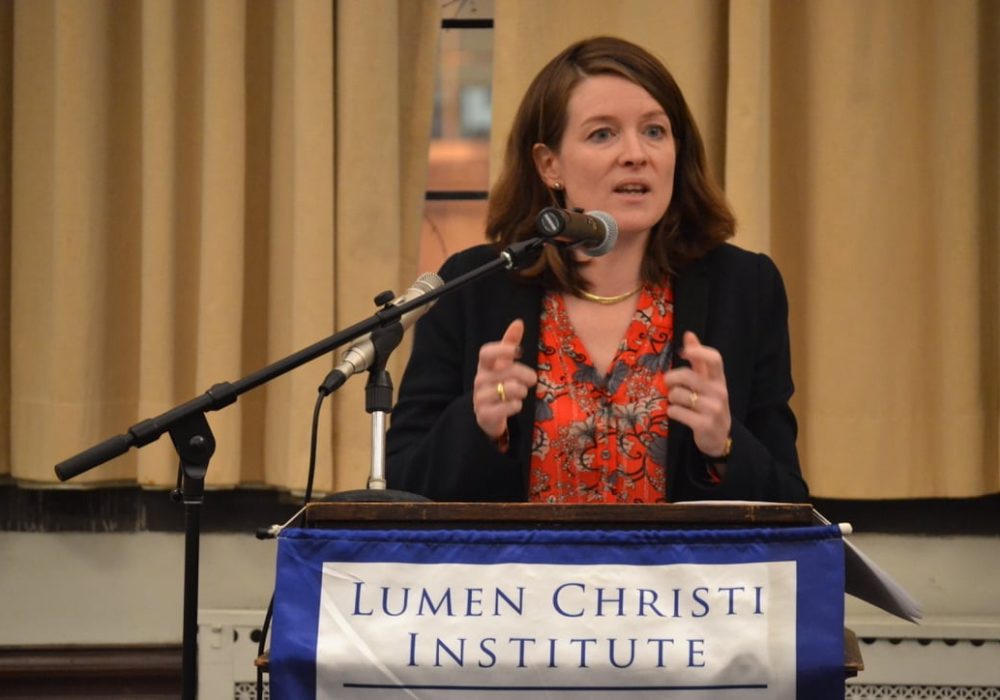You can subscribe to the Lumen Christi Institute Podcast via our Soundcloud page, iTunes channel, Stitcher, TuneIn, ListenNotes, Podbean, Pocket Casts, and Google Play Music.
To view photos of the lecture, visit Lumen Christi’s Facebook page.
To read Tardivel’s lecture in essay form in the Notre Dame McGrath Institute for Church Life’s Church Life Journal, click here.
You can download the event poster here.
Free and open to the public. Cosponsored by the France Chicago Center.
Does Christian faith imply a political doctrine such as a Christian political regime? Drawing on Justin, Tertullian, and Augustine, Prof. Tardivel argues that even as Christian citizenship does not refer to a political doctrine, it nonetheless demands a certain manner of living in the city, presenting a paradox to classical political thinking. This lecture focuses on the paradox of Christian citizenship and its implications.

